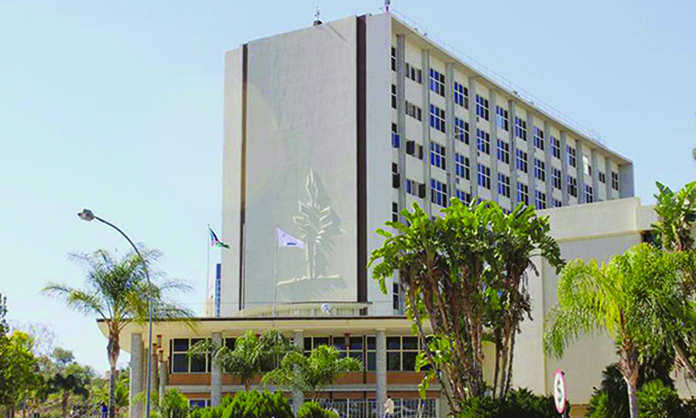… challenges ECB’s order not to do so in court
Economic and social justice activist Nafimane Hamukoshi is concerned about the City of Windhoek’s challenge of a directive against electricity disconnections.
Currently, the City of Windhoek and the Electricity Control Board (ECB) are in court over the latter’s directive for municipalities to stop cutting off electricity supply to consumers over unpaid municipal bills, such as rates and taxes, as well as water supply.
Arguing against the ECB directive issued in June, the city maintains that the blocking of prepaid meters and suspension of the supply of electricity of defaulting residents is one of their most effective debt-collection methods.
Hamukoshi yesterday said the ECB being unable to enforce its ruling against local authorities blocking prepaid electricity meters due to unpaid municipal bills is deeply concerning.
“It highlights a significant gap in accountability and consumer rights, especially for vulnerable communities who rely on these services. The ECB’s directive, which aims to protect citizens from being unfairly penalised for unrelated debts, reflects an understanding of the importance of access to essential services like electricity,” Hamukoshi said.
She said the decision by the city to contest this directive in court not only delays justice but also undermines the authority of the ECB and puts many residents at risk of living without electricity.
“This legal impasse illustrates how bureaucratic processes can hinder progress and exacerbate inequalities, particularly affecting those already struggling financially. It raises critical questions about governance, the prioritisation of citizen welfare over legal disputes and the need for systemic reforms that ensure fair access to basic utilities,” she said.
Social activist Shaun Gariseb says Windhoek councillors voted into positions by residents are now turning against them.
“Shamelessly, the City of Windhoek has taken the ECB to court, they want ECB to set aside their directive and give the city special dispensation, special permission to illegally continue blocking electricity; the councillors who we voted for don’t care about us.”
He further accuses the City of Windhoek of fighting against its residents.
“The ECB is not fighting us; it’s the City Of Windhoek that is fighting us all, be ready for necessary action in the coming week,” Gariseb says.
Gariseb says they will hold a press conference on the matter on 21 November.
The city declined to comment on the matter as the case is still in court.
“The matter pertaining to the ECB directive is currently in court and we cannot comment beyond this point at this stage,” City of Windhoek spokesperson Lydia Amutenya said yesterday.
ECB on Friday announced that it cannot currently intervene in cases where local authorities block prepaid electricity meters due to unpaid municipal service bills.
ECB chief executive Robert Kahimise says the practice contravenes the Electricity Act of 2007, as well as subordinate legislation.
“The ECB hereby informs the public that its ruling has since been challenged in a court of law,” Kahimise says.
He says the ongoing legal proceedings have restricted the ECB from taking any immediate action against licensees who implement the practice.
The ECB says complaints regarding the blocking of prepaid electricity meters for arrears on other municipal services will not be investigated until the court reaches a decision.
Stay informed with The Namibian – your source for credible journalism. Get in-depth reporting and opinions for
only N$85 a month. Invest in journalism, invest in democracy –
Subscribe Now!








